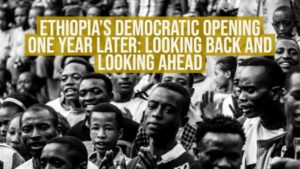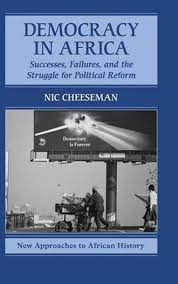 For all the economic successes of countries like Ethiopia and Rwanda, three major questions about authoritarian development in Africa remain, Nic Cheeseman writes for the Carnegie Endowment:
For all the economic successes of countries like Ethiopia and Rwanda, three major questions about authoritarian development in Africa remain, Nic Cheeseman writes for the Carnegie Endowment:
- First, there is some evidence that the empirical data used to identify Ethiopia and Rwanda as success stories may not be as impressive as it was first thought. A 2019 investigation by the Financial Times found that contrary to the Rwandan government’s protestations, “poverty most likely increased between 2010 and 2014.” Similarly, economic growth figures shared by the Ethiopian government have often exceeded International Monetary Fund projections—in some cases by as much as 3.5 percentage points. This suggests that the official figures are part of a broader propaganda campaign designed to sell the regime both at home and abroad.
- Second, it is unclear whether the political systems established in Ethiopia and Rwanda can be reproduced in other, very different contexts. It seems implausible, for example, for a government to impose the kind of tight control needed for developmental patrimonialism to work in countries with stronger opposition parties and civil societies, such as Kenya and Nigeria.
- The third and perhaps most important question relates to whether these authoritarian regimes will be able to maintain the political stability needed to safeguard developmental gains. The Tiger economies of East Asia, such as South Korea and Taiwan, entrenched the economic progress they achieved in the 1970s and 1980s by undergoing relatively smooth transitions to more open and inclusive—and hence legitimate and stable—political systems in the 1990s.
 The outcome of current struggles in Africa will determine the degree of progress towards democracy – or lack of it, argues Cheeseman, Professor of Democracy at the University of Birmingham, and author of Democracy in Africa. Recent years have seen a growing polarisation on the continent, with countries such as Tanzania and Uganda becoming increasingly repressive while some of Africa’s leading democratic lights have consolidated their gains, he writes for the Africa Report:
The outcome of current struggles in Africa will determine the degree of progress towards democracy – or lack of it, argues Cheeseman, Professor of Democracy at the University of Birmingham, and author of Democracy in Africa. Recent years have seen a growing polarisation on the continent, with countries such as Tanzania and Uganda becoming increasingly repressive while some of Africa’s leading democratic lights have consolidated their gains, he writes for the Africa Report:
Indeed, it is telling that while so many countries were sliding towards greater authoritarianism in 2020, Ghana held another election that – despite being close – was so well run and orderly that some correspondents characterised it as “boring”. …History suggests that in many countries repression will win out in the short term, but not forever.
“Every year an African country teaches us about the transformative potential of people power, and when that lesson is learned it stays learned,” Cheeseman adds.
Malawi is the Economist’s Country of the Year “for reviving democracy in an authoritarian region.” Yet surveys from Afrobarometer – a partner of the National Endowment for Democracy (NED) – show that among Malawians’ preferred development models, China ties with the United States, just behind South Africa, Afrobarometer adds.
The Conflict in Ethiopia Calls Into Question Authoritarian Aid https://t.co/Vfh5JNlsc6 via @CarnegieDCG
— Democracy Digest (@demdigest) December 22, 2020







